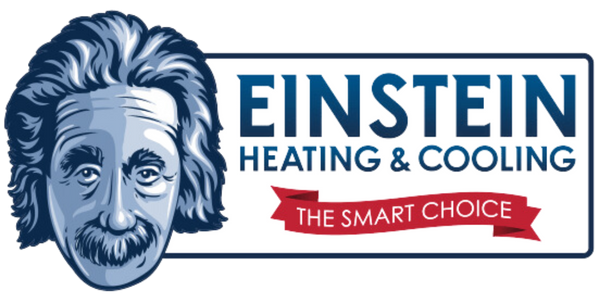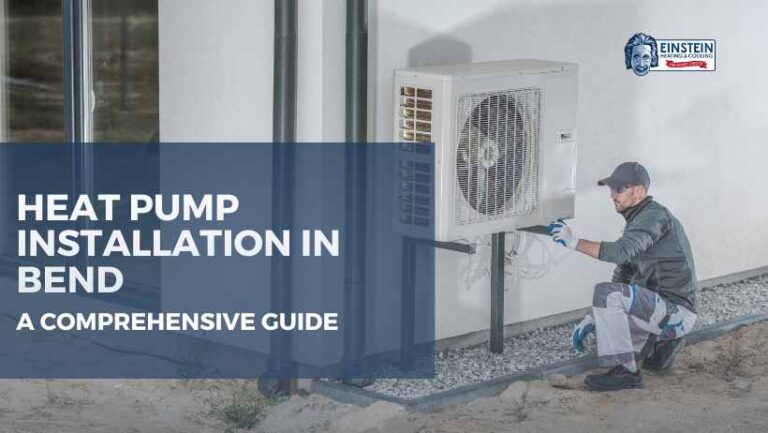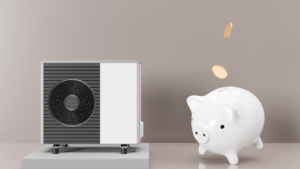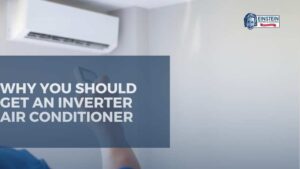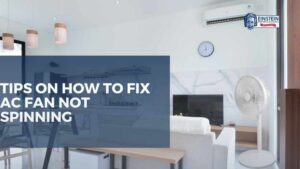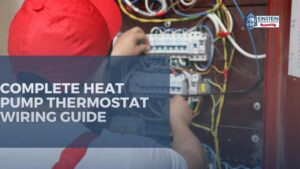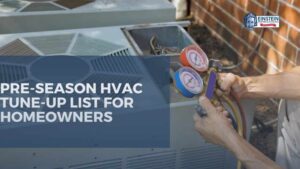Bend, Oregon, with its picturesque landscapes and diverse weather patterns, presents a unique set of challenges and opportunities when it comes to heating and cooling systems. One increasingly popular solution in this region is heat pump installation. These devices provide energy-efficient heating and cooling, making them an excellent choice for Bend’s climate. In this comprehensive guide, we will delve into the crucial factors to consider for a successful heat pump installation in Bend as well as discuss various heat pump misconceptions.
Factors Influencing Heat Pump Installation in Bend
1. Climate Considerations
When contemplating heat pump installation in Bend, the first and foremost factor to assess is the climate. Bend experiences a semi-arid climate with cold winters and warm summers. This makes it crucial to choose a heat pump system that can effectively handle both heating and cooling requirements.
Heating Season Performance Factor (HSPF)
- To ensure optimal performance during the cold winter months, select a heat pump with a high Heating Season Performance Factor (HSPF). This factor measures the efficiency of the system in heating mode, and a higher value indicates better energy efficiency.
Seasonal Energy Efficiency Ratio (SEER)
- For efficient cooling in Bend’s warm summers, the Seasonal Energy Efficiency Ratio (SEER) becomes a vital metric. Choose a heat pump with a high SEER rating to ensure effective cooling while minimizing energy consumption.
2. Sizing the Heat Pump
Properly sizing the heat pump is a critical aspect that directly impacts its efficiency and performance. Installing an oversized or undersized heat pump can lead to increased energy consumption and discomfort.
Manual J Load Calculation
- Conduct a Manual J load calculation to determine the heating and cooling requirements of your home accurately. Factors such as insulation, windows, and local climate should be considered to ensure the heat pump is appropriately sized.
Professional Assessment
- Engage a professional HVAC technician in Bend, Oregon to assess your home’s specific needs. Their expertise can help determine the ideal size of the heat pump, ensuring it operates at peak efficiency without unnecessary energy wastage.
3. Energy Efficiency and Environmental Impact
One of the primary advantages of heat pumps is their energy efficiency and minimal environmental impact. Understanding the efficiency ratings and environmental considerations is crucial when opting for heat pump installation.
Energy Star Certification
- Look for heat pumps with Energy Star certification. This designation signifies that the equipment meets or exceeds the stringent energy efficiency guidelines the Environmental Protection Agency (EPA) set.
Refrigerant Selection
- Consider the type of refrigerant used in the heat pump. Opt for environmentally friendly refrigerants with lower Global Warming Potential (GWP) to minimize the system’s impact on the environment.
4. Ductwork Assessment
The condition and design of the existing ductwork play a significant role in the performance of a heat pump system. Proper assessment and potential modifications are crucial to maximize efficiency.
Ductwork Inspection
- Conduct a thorough inspection of the existing ductwork to identify any leaks, gaps, or insulation issues. Addressing these concerns before heat pump installation ensures that the conditioned air is distributed effectively.
Ductwork Modifications
- If necessary, make modifications to the ductwork to accommodate the airflow requirements of the heat pump. Properly designed and sealed ducts contribute to the overall efficiency of the heating and cooling system.
5. Installation Site Considerations
Choosing the right location for heat pump installation is paramount for optimal performance and longevity of the system.
Outdoor Unit Placement
- Place the outdoor unit in a well-ventilated area with sufficient clearance around it. This ensures proper air circulation and allows the heat pump to operate efficiently without any hindrance.
Avoiding Shade and Debris
- Select a location that minimizes exposure to shade and debris. A clear space around the outdoor unit prevents potential airflow restrictions and enhances the overall efficiency of the heat pump.
6. Smart Thermostat Integration
Incorporating a smart thermostat into your heat pump system offers enhanced control and energy savings.
Compatibility
- Ensure that the selected heat pump is compatible with smart thermostat systems. Integration allows for convenient temperature control and scheduling, optimizing energy usage based on your lifestyle.
Energy Monitoring Features
- Choose a smart thermostat with energy monitoring features. This provides insights into your heating and cooling patterns, enabling you to make informed decisions to further improve efficiency.
7. Warranty and Maintenance
Regular heat pump maintenance is essential to keep the heat pump operating efficiently, and a comprehensive warranty provides peace of mind for homeowners.
Manufacturer’s Warranty
- Review the manufacturer’s warranty to understand the coverage and duration. A more extended and comprehensive warranty often indicates the manufacturer’s confidence in the durability and reliability of their product.
Professional Maintenance
- Establish a routine maintenance schedule with a qualified HVAC professional. Regular check-ups and maintenance help identify and address potential issues before they escalate, ensuring the longevity of the heat pump.
8. Financial Considerations
Understanding the financial aspects of heat pump installation is crucial for making an informed decision and maximizing cost-effectiveness.
- Initial Cost vs. Long-Term Savings
Evaluate the initial cost of the heat pump against its long-term energy savings. While high-efficiency models may have a higher upfront cost, they often provide substantial savings on energy bills over the system’s lifespan.
Available Incentives and Rebates
- Research local incentives and rebates for energy-efficient HVAC systems. Many utility companies and government programs offer financial incentives to encourage the adoption of environmentally friendly technologies.
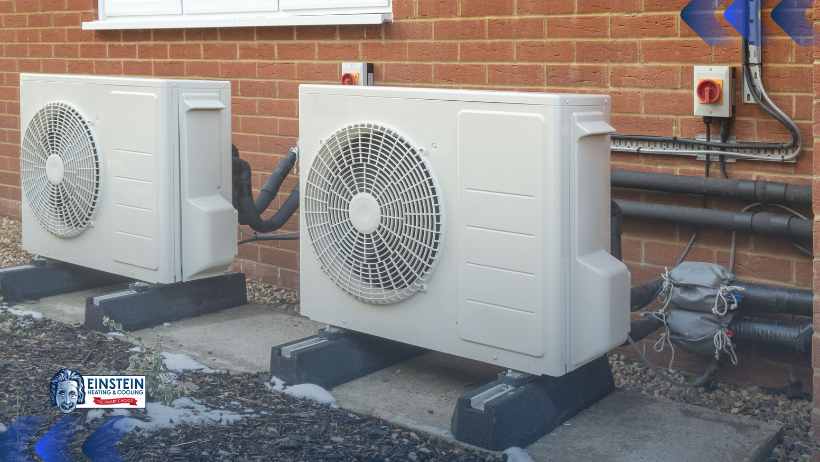
9. Local Regulations and Permits
Before embarking on a heat pump installation project in Bend, it’s essential to be aware of local regulations and obtain the necessary permits.
Code Compliance
- Ensure that the chosen heat pump system complies with local building codes and regulations. This step is crucial to avoid legal issues and guarantee the safety and efficiency of the installation.
Permit Acquisition
- Obtain the required permits for the installation. Local authorities may have specific guidelines and documentation needed before initiating the project, emphasizing the importance of adherence to regulations.
10. Integration with Existing HVAC Systems
For homeowners with existing HVAC systems, the integration of a heat pump requires careful consideration to maximize efficiency and overall performance.
Compatibility Assessment
- Evaluate the compatibility of the heat pump with the existing HVAC components. Ensuring seamless integration minimizes the risk of malfunctions and optimizes the overall performance of the entire heating and cooling system.
Professional Consultation
- Seek professional advice from an experienced HVAC technician to assess the viability of integrating a heat pump with the current HVAC setup. HVAC professionals can provide insights into potential challenges and recommend solutions to ensure a harmonious integration.
11. Noise Levels
While heat pumps are generally quieter than traditional HVAC systems, it’s crucial to consider noise levels, especially in residential areas where peace are valued.
Decibel Ratings
- Review the decibel ratings of potential heat pump models. Opt for units with lower noise levels to minimize disturbances, ensuring a comfortable living environment for you and your neighbors.
Sound Dampening Measures
- Explore sound-dampening options during the installation process. Proper placement and additional insulation can further reduce operational noise, contributing to a more peaceful home environment.
12. Emergency Heating Solutions
Given Bend’s occasional severe winter weather, having a reliable emergency heating solution is a prudent consideration.
Dual-Fuel Systems
- Consider a dual-fuel system that combines a heat pump with a secondary heating source, such as a gas furnace. This setup ensures reliable heating during extremely cold weather when the heat pump’s efficiency may be compromised.
Emergency Heat Settings
- Ensure that your heat pump system has emergency heat settings. This feature allows the system to prioritize the secondary heating source when outdoor temperatures drop significantly, maintaining a comfortable indoor environment.
13. Long-Term Sustainability
Sustainability is a growing concern, and choosing a heat pump system with a focus on long-term environmental impact is essential.
Lifespan of Components
- Evaluate the lifespan of critical components in the heat pump system, such as the compressor and coils. Selecting durable components contributes to the system’s longevity and reduces the need for premature replacements.
End-of-Life Disposal Considerations
- Consider the environmental impact of disposing of heat pump components at the end of their life cycle. Opt for manufacturers or recycling programs that prioritize environmentally responsible disposal practices.
14. User-Friendly Controls
The ease of use and accessibility of control features significantly impact the overall satisfaction with a heat pump system.
Intuitive Thermostat Controls
- Choose a heat pump system with an intuitive thermostat interface. User-friendly controls enhance your ability to program and adjust settings, ensuring optimal comfort and energy efficiency.
Remote Accessibility
- Consider systems that offer remote accessibility through smartphone apps or online platforms. This feature allows you to monitor and control your heat pump remotely, offering convenience and flexibility.
15. Professional Installation Services
While some homeowners may be inclined to undertake DIY installations, opting for professional installation services is crucial for a seamless and trouble-free experience.
Expertise and Experience
- Choose HVAC professionals from Einstein Pros with extensive expertise and experience in heat pump installations. Their knowledge ensures that the system is installed correctly, avoiding potential issues that could arise from improper installation.
Post-Installation Support
- Verify the availability of post-installation support from the HVAC professionals. Having a reliable point of contact for any concerns or queries post-installation adds an extra layer of assurance for homeowners.
Debunking Heat Pump Installation Myths
Myth: Heat Pumps are Ineffective in Cold Climates
One prevalent misconception is that heat pumps cannot efficiently operate in cold climates like Bend’s. However, modern heat pump technology has advanced significantly. Heat pumps are designed to work efficiently in cold temperatures, and many models can effectively extract heat from the air even when it’s below freezing.
- Heat pumps use a refrigeration cycle that allows them to extract heat from the outdoor air, making them suitable for cold climates.
- Some advanced heat pump models come with built-in auxiliary heating systems to provide additional warmth during extremely low temperatures.
Myth: Heat Pump Installation is Exclusively for New Homes
Another common myth is that heat pumps are only suitable for new constructions. In reality, heat pump installations can be seamlessly integrated into existing homes, providing an energy-efficient heating solution without the need for extensive renovations.
- Retrofits are common, and heat pumps can be installed in older homes with minimal modifications.
- Ductless mini-split heat pump systems are especially versatile and can be easily installed in homes without existing ductwork.
Myth: Heat Pumps are Noisy
Some homeowners are concerned about the noise levels associated with heat pumps. However, technological advancements have significantly reduced the operational noise of modern heat pump systems.
- Heat pump manufacturers prioritize noise reduction, and many models operate quietly to ensure minimal disruption.
- Regular maintenance, including cleaning the outdoor unit and ensuring proper installation, can further minimize any potential noise.
Myth: Heat Pumps are Inefficient in Large Homes
There’s a misconception that heat pumps are not suitable for large homes. In reality, the efficiency of a heat pump depends on factors such as the unit’s size, the insulation of the home, and proper installation.
- Heat pumps come in various sizes to accommodate the heating needs of different-sized homes.
- Proper sizing and installation by a professional are crucial to ensure optimal efficiency, regardless of the home’s size.
Myth: Heat Pump Installation is Cost-Prohibitive
Some homeowners believe that installing a heat pump is an expensive endeavor. While the upfront costs may seem significant, it’s essential to consider the long-term savings and benefits associated with energy-efficient heating.
- Many utility companies offer incentives and rebates for heat pump installations, making them more financially viable.
- The energy savings over time can offset the initial installation costs, providing a cost-effective heating solution.
Myth: Heat Pumps Only Provide Heat
Contrary to popular belief, heat pumps offer both heating and cooling capabilities. They function as a versatile, all-in-one HVAC solution, making them suitable for the diverse climate conditions in Bend.
- Heat pumps can be used for both heating in winter and cooling in summer, eliminating the need for separate heating and cooling systems.
- This dual functionality makes heat pumps a year-round solution for maintaining indoor comfort.
Myth: Heat Pumps Require High Maintenance
Some homeowners worry about the maintenance demands of heat pump systems. In reality, routine maintenance is relatively simple, and professional servicing can ensure optimal performance.
- Regular tasks such as cleaning or replacing air filters, checking refrigerant levels, and inspecting the outdoor unit are typically the main maintenance requirements.
- Annual professional inspections can address any potential issues and prolong the lifespan of the heat pump.
Conclusion
In conclusion, a successful heat pump installation in Bend requires careful consideration of various factors. By addressing these factors thoughtfully, homeowners can enjoy efficient and cost-effective heating and cooling throughout the year, making the most of Bend’s diverse weather conditions. Partnering with experienced HVAC professionals from Einstein Heating and Cooling ensures a seamless installation process and long-term satisfaction with the chosen heat pump system.
